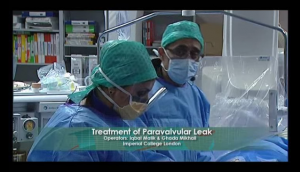Professor Sir Bruce Keogh, previously Medical Director of the NHS, and a cardiac surgeon by trade, said all surgeons should have their operation statistics published. He felt that doing so would make the surgeon more careful. The risk taken would not be just for the patient, but would now also hang over the surgeon.
This seems obviously a great idea.
But hang on a minute…
Like all issue, it is more complicated than it seems.
- Did it mean that some surgeons were previously “gung-ho”- I have not come across those- most are very balanced on their approach to risk.
- Will it mean surgeons will practice more safely- perhaps- if they were “gung-ho” in the 1st place, but perhaps it will make them risk averse. That is, they will refuse to take on the higher risk cases-as that will reflect badly on their Stats. This is the same as the school not entering your child in for an exam because they wont get a grade 7,8 or 9, and that will reflect badly on their school performance table.
So, the outcomes have to be risk-adjusted
- If the expected death rate is 5% from the surgery and the surgeons ouctome are 5%, then she/he is performing as expected.
- If in fact their outcomes are 3%, they are better than expected (or the risk scoring system is out of date- as all surgery is improving as time goes by- remember a Victorian era surgeon would chop a leg off without anaesthetic or antibiotic!).
- If they are performing worse- say 7% death rate:
- it could be that the risk scoring system is not taking some other factor into accout that is vitally important (eg frailty of the patient- which is easy to judge in front of you when seeing the patient walk in, but hard to quantify).
- Or the surgeon as not done as many cases to even things up, and a play of chance has made the stats look bad.
- Or of course, there is a genuine problem that needs to be looked into- This is rare
So. Do you want a surgeon with very low mortality for their procedures- YES
But. Do you want a surgeon used to dealing with high risk cases-YES because they will find the easier cases very simple and get great results. BUT this surgeon will a mortality rate that will of course be higher than for the average surgeon.
Conclusion
It is hard to know who is “the best”. A personal recommendation by someone in the know is probably better than searching for statistics that are harder to interpret. On average surgeons, including interventionalists like me, get appointed as Consultants (in USA speak, “Attending Physicians”) at about 35-40, and reach their peak of experience 45-55- when they have been around long enough to know all of the issues, experienced all of the complications, and thus know how to deal with them. Their data is also more stable- as they have done so many cases that their average mortality is a true representation of what they do.
UK surgeons are now moving AWAY from individual surgeon data, but presenting data for their unit. If the whole unit data is looking bad, then individual surgeons data should be examined. This makes more sense to me.



